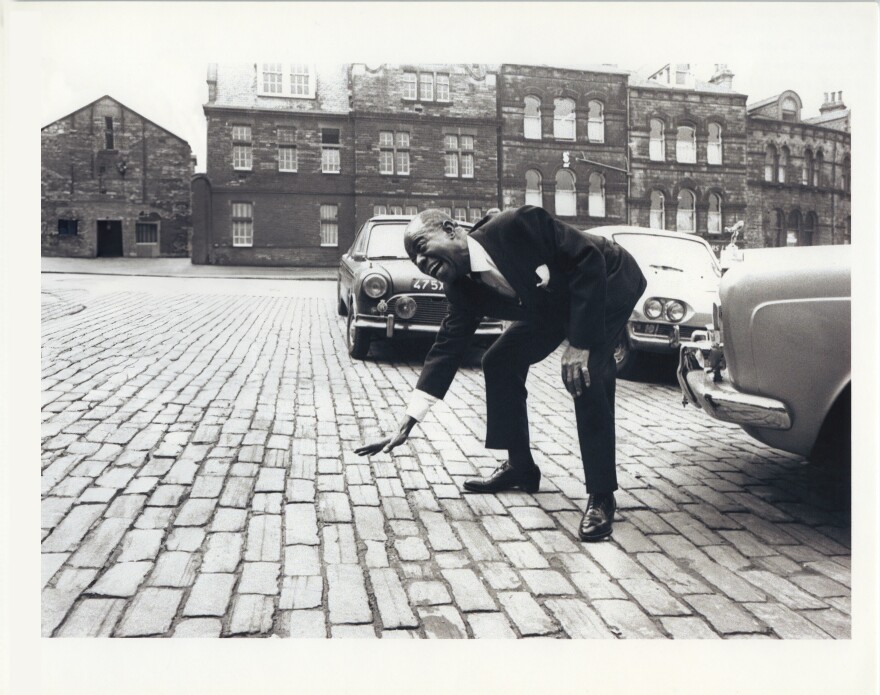Louis Armstrong was on top of the world — or at least, the top of the charts — as he prepared to celebrate his birthday on tour in London in 1968. “What a Wonderful World,” recorded the previous year, had hit No. 1 on the UK Singles Chart that spring, officially putting Pops at the Top of the Pops.
The sentimental ballad, which received minimal promotion from his label back home, was a genuine phenomenon in England. So it was a natural showpiece in a BBC television broadcast that Armstrong taped in early July. Footage from the taping shows him in relaxed, expressive form, savoring each phrase in George Davis Weiss’ melody, and every emotional turn in Bob Thiele’s lyrics. The summer of ‘68 marked a turbulent cultural moment around the world, but within the song Armstrong locates a common humanity, finding much to cherish.
It wasn’t just a television taping that brought him across the pond. Armstrong played an extended June engagement at Yorkshire’s Batley Variety Club, and after the BBC taping on July 2, he performed in London at the New Victoria on July 3 and the Odeon Hammersmith on July 4 — the date that Armstrong knew as his birthday, and that his home country observes as Independence Day. (Britons are less inclined to celebrate it thus.) The whole trip was a triumph.
Louis in London, due out on July 12 from Verve, chronicles the full performance that Armstrong and his All Stars gave at the BBC studios in 1968. Touted by the label as Pops’ “last great performance,” the session captures him in high spirits and granite footing, on trumpet as well as vocals, joined by Tyree Glenn on trombone, Joe Muranyi on clarinet, Marty Napoleon on piano, Buddy Catlett on bass and Danny Barcelona on drums.
Another clip from the broadcast shows Armstrong reveling in good feeling with his band. “Hello, Dolly!” — his previous international hit, which famously knocked The Beatles off their perch in 1964 — was an unfailing winner on tour, as it proved in the BBC studio. After the song’s final bar, Glenn counts it off again, facing the audience to kick off an ebullient crowd-pleasing coda. Then he does it again, making the set into a party.
Armstrong took considerable pride in this performance, as Ricky Riccardi, Director of Research Collections for the Louis Armstrong House Museum, observes in his album notes. “Ever since he received the copy of the 1968 London shows on tape, Armstrong became determined to let the world hear this music,” he writes. “He sent copies to friends and musicians but that wasn’t enough. He took the master tape and affixed a piece of tape to the outside cardboard box. On it he scrawled, ‘FOR THE FANS.’”

Louis in London arrives just as the original recording of “What a Wonderful World” has been certified five-times platinum by the RIAA. And as a late-career memento, the new release carries poignancy. Riccardi — whose third and final Armstrong biography, Stomp Off, Let’s Go: The Early Years of Louis Armstrong, will publish later this year on Oxford Univ. Press — reveals that “Armstrong was so energized by what he heard, he began making copies of the BBC concerts,” sending these reel-to-reel tapes to friends and members of the band.
“Be on the lookout for a Tape I’m Sending to you to keep in your files,” he wrote in a letter to Barcelona in January of 1969. “It’s the recording that we did in London England, July 2nd, 1968, for the BBC Television Centre. The most relax thing we’ve ever done. One + two sides. A concert on each side. S’too much, man.”
Louis in London will be released on July 12 on Verve.


